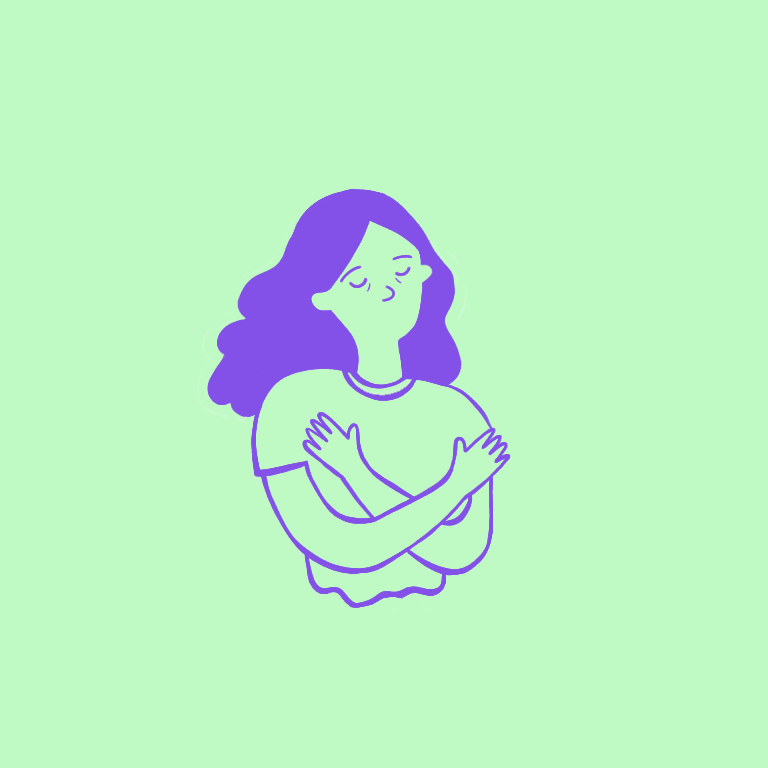Ascertaining The Problem
It’s pretty tough to recognise a mental illness, mostly because we don’t know what to look for. And we’re speaking from experience. Sometimes, we don’t know what signs to look for. Mood swings are usually overlooked in the case of teenagers and physical ailments are normally never associated with mental illness. Let us help with that. Here are some signs that you may want to keep in mind to be sure of your mental health:
- Thinking process:
If you feel like you’re unable to concentrate, experience disorientation, confusion, and indecisiveness, and are unable to complete tasks while being bombarded with tendencies to overthink and intrusive thoughts, don’t worry. We’re here to help.
- Eating and sleeping patterns:
Examining your eating and sleeping patterns helps you to understand whether trouble with your “thinking process” is a sign of concern or not. If a healthy eater starts to turn down meals or starts binge eating suddenly and an active person becomes sleepy and lethargic, then there may be something at play here.
- Relationships:
Individuals who face these symptoms and emotions may start to withdraw from their family and friends. They may start to isolate themselves and stop communicating. In some cases, they may start to hang around with new friends. This is more common in cases of eating disorders and substance abuse-related issues. Be conscious of these patterns.
- Physical symptoms:
Many studies have discovered that mental illness can affect your body and manifest as symptoms such as headaches, dizziness, nausea, general weakness, muscle pain, etc.
- Journaling:
If you discover that you are facing two or more issues then the first step to do is start tracking them. How often do racing disturbing thoughts stop you from doing your work? What physical symptoms are you facing and when? How many hours of sleep did you get? How long have these changes started manifesting in you?. Tracking your routine helps you be on the same page with your body and mind.
Becoming Accepting of the Problem
You may be thinking, “Okay there may be something wrong here, now what do I do?” Well don’t fret, here are some suggestions-
- Introspection
Now is the time to introspect. Observe and reflect on your thinking and emotional processes. Learn what your triggers may be. Examine how it affects you and different parts of your life.
- Realising
After introspection, you now understand that there may be something wrong. But as soon as we reach this conclusion, the first thing we may feel is scared and/or ashamed. This is due to the stigmatization of mental illnesses in our society. Remember, this is not your fault, and keep in mind that help is always available
- Destigmatising
Now, destigmatizing is an important part of your process of acceptance. Society has deeply stigmatized mental health which has caused us to feel ashamed when we ask or seek out help. Accept that you are not weak or broken because your mental wellbeing isn’t where you would like it to be and seek/ask for help in whatever way you can.
Calling Out For Help
Once you have accepted what may be bothering you and have gathered the courage to do something about it, here are some suggestions we have for you that may help-
- Approaching family members: Tell your guardians what problems you face. You may feel uncomfortable about it, so treat it as you would treat any other illness. If you can talk to them about a stomach ache that you’ve been having for the past 2 days then you can talk to them about your mental health struggles. Make it clear that you need help and want to go to a doctor. They may be a bit hesitant at the start but you have to stand your ground because you deserve the help you need.
- Seeking out help yourself: If you are financially independent, you can search for psychologists near you. If you are not comfortable approaching them then you can also go to your general physician or your primary care doctor and progress from there. If you are financially dependent, then you can seek out help from your school/college counselor while researching resources or tips online. For eg, The Trevor Project is a great place for young members of the LGBTQIA+ community, you may search up grounding techniques if you feel anxious often or you may reach out to us and let us help!.
Most of all, realise that you may be going through something difficult and tell yourself that that is okay. Tell yourself that though it may not get better overnight, it will be okay eventually. You will make it through this. We love you and we’re glad you’re here. Take a hug.
Virtually Yours,
People of Nora ♡





